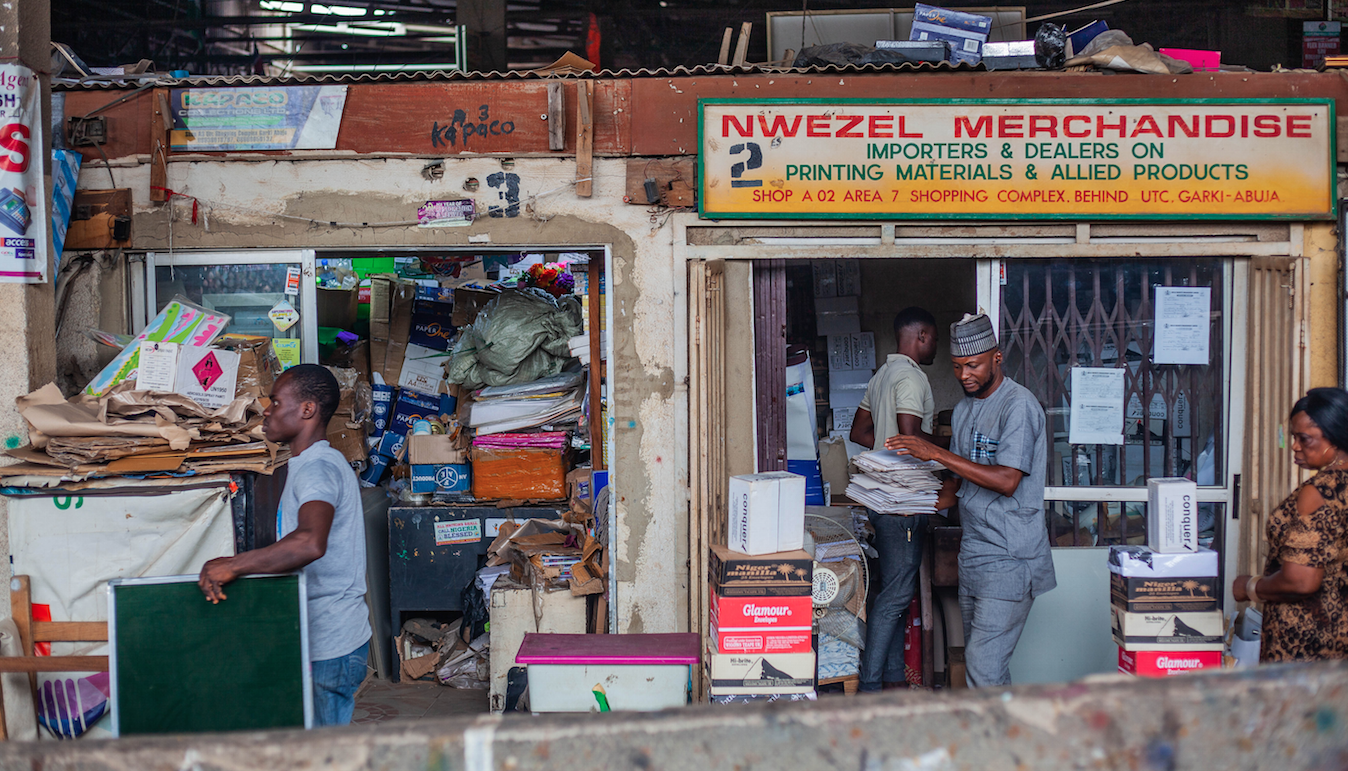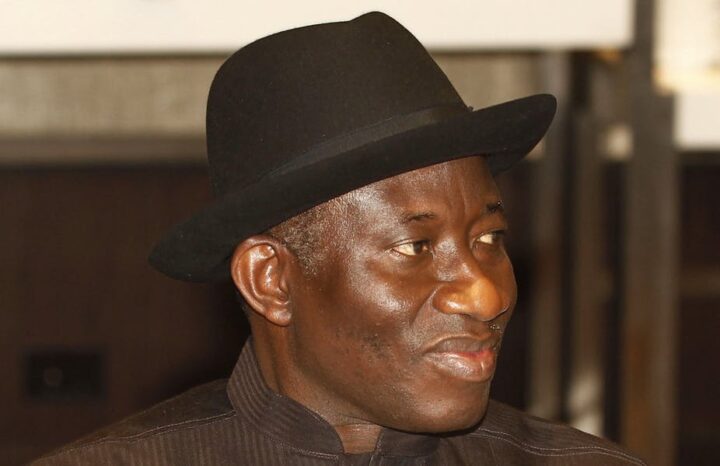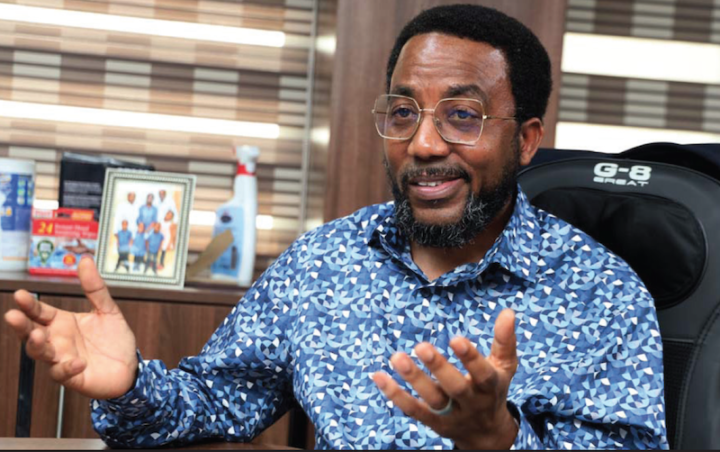BY FEJIRO JOHNSON
As the 2023 elections gather momentum, one is not surprised by the sort of things that are published in the print and digital media and said on broadcast outfits, all in a bid to malign political opponents and blame them for virtually everything that has gone wrong, not only in Nigeria but across the world.
One of such collections of half-truths, innuendos and outright lies is the article titled “Osinbajo’s problematic ambition” written by Gbenga Adefulu. The article was so convoluted and much of a half-smart hatchet job that even the publishers had to quickly do a disclaimer.
The writer must have surely written the piece drowned in “burukutu” – a local brew consumed in a few towns and cities across the country, otherwise his anger and vile choice of words cannot be justified when you compare his piece to the realities on the ground. In fact, the only thing the writer didn’t accuse the VP of doing was bringing COVID-19 virus to Nigeria.
Advertisement
In truth, there is nothing problematic about Osinbajo’s “ambition”. It was rather a courageous declaration, borne out of sincerity of purpose. Moreso, the writer’s piece is littered with a bunch of hard and soft lies, plus a grand deception served in a facade of credible statistics.
Gbenga’s first lie was in his first line, with his false claim that Osinbajo delayed his declaration speech because he did not secure President Muhammadu Buhari’s “anointing as the preferred or consensus candidate despite several entreaties and lobbying”. It goes without saying that the VP, as President Muhammadu Buhari’s loyal and reliable deputy, one whom the president has spoken highly about on different occasions, would certainly seek the blessings of his boss before making such a decision to run for president. The writer’s so-called reliable sources are not so reliable after all. Truth is that such a candidate like the VP, with all the clamour for his emergence, would be ready for whatever option chosen to conduct the party primaries. Why would a presidential aspirant loved by so many be afraid of voting? The author’s argument on this issue falls flat and only reveals the weakness of those pushing it out!
Moreover, the world over, debates about a country’s economic management are often based on trends and other prevailing factors, and no single idea is ever taken as the ideal and superior one. The solutions to complex economic issues are usually multidimensional, often times a mix of different models and strategies, because there are many factors responsible for a country’s downward or upward inflationary trends, the balance of trade issues and foreign exchange rates, among others. This presupposes that economic management is dynamic and flexible, hence they are reviewed regularly, especially when expected outcomes are not realised or delayed for too long.
Advertisement
To this end, to say that the Nigerian economy was ruined and battered under the watch of the VP and President Buhari is to deny a number of facts – the global crash in crude oil prices from a record high pre-2015 affected Nigeria’s oil revenues; COVID-19 negatively impacted the global economy, including Nigeria; the insecurity in the north-east and north-west started before the Buhari administration. And most recently, the invasion of Ukraine by Russia has destabilized the global oil and gas supply and affected the global economy.
Moreover, it is worth noting that under President Buhari, Nigeria has recorded significant improvement in the fight against insurgency and also speedily exited two recessions, despite global economic factors.
On the writer’s supposed hard facts or lies, the vice president’s take on the “rethink of CBN’s demand management strategy” was borne out of concern for the country’s economy at the particular time. I was shocked that the author, in his self-imposed myopic tunnel vision, said nothing about the round-tripping and arbitrage which the current strategy of the CBN encourages!
It wasn’t an outright and a mere call for the country’s currency devaluation as now enunciated by a few detractors. It is important for naysayers to put this matter to rest having tried in vain to count it as one of the failures of the VP as head of Buhari’s Economic Management Team (EMT).
Advertisement
This brings me to my next point, which is the writer’s claim that the VP has been in charge of the Economic Management Team for 7 years. It is pertinent to note the writer’s selective amnesia having recalled supposed facts even before the administration came on board, but didn’t remember that the VP ceased being the head of Buhari’s EMT in September 2019 when it was dissolved and replaced with the Presidential Economic Advisory Council (PEAC). And in any case, a vice president cannot be in charge of anything, except as delegated, for all the executive powers are vested in the president at all times.
Without shifting the goal post, fixing complex economic issues takes time. So, it is lame to ascribe delayed progress to the actions and inactions of a team or individuals. Global economic factors have affected world economies, but the Nigerian government continues to take proactive steps to address the issues. One instance is the Economic Sustainability Plan implementation, which was effective in assuaging the economic shocks from the COVID-19 global pandemic. Global agencies such as the IMF have even praised the ESP.
It is on record that while many countries were still reeling from the impact of the pandemic, Nigeria exited the COVID-19-induced recession faster than predicted and way ahead of most countries. This was due to the Economic Sustainability Plan (ESP) of the Buhari administration, which the president asked the VP to develop. Recall that in March 2020, the president had set up an Economic Sustainability Committee (ESC) chaired by Vice President Osinbajo, to develop a comprehensive economic plan to respond to the disruptions and dislocations caused by the COVID-19 pandemic. The ESC produced the ESP which was spearheaded by the VP. Over 2 million jobs were saved by the ESP implementation, among other gains to the economy.
Not only that, Osinbajo’s tour of the Niger Delta region in 2017, under the mandate of the president, has continued to record significant successes for the country through the administration’s Niger Delta New Vision. The VP’s engagements halted the tensions and attacks on oil installations in the region and were key to helping Nigeria recover from the 2016 recession, and the country’s oil production drastically improved as a result of the VP’s tour/Niger Delta New Vision initiative.
Advertisement
The vice president has been at the heart of the socio-economic strides of the Buhari administration, including the globally commended Social Investment Programmes (SIPs), which was under the supervision of the VP’s office between 2016 and 2019. The SIPs have benefitted over 35 million direct and indirect beneficiaries, with significant gains and job creation across value chains and different sectors of the economy.
Osinbajo has also played key roles in the Buhari administration’s investments in youth and technology development, with numerous programmes such as the I-DICE, a $600 million programme that will support young tech and creative sector entrepreneurs; the MSMEs clinics which have continued to improve small businesses nationwide, among many other government-private sector-led initiatives for economic growth.
Advertisement
In the area of infrastructure, the Buhari administration has recorded many improvements, with massive investments in rail, road, and energy infrastructure. Of course, this makes a great impact for economic growth. Yes, the VP said in his declaration speech that he would continue what Buhari has started; such as in these areas, even as the country also addresses security challenges, by reconfiguring the country’s security architecture to be able to more effectively address these challenges, among others.
The improvement in broadband connectivity and the digital tech economy is here to stay. Nigeria, in the last six years, has produced six unicorns and has the highest number of tech start-ups in this part of Africa. These positives did not just happen overnight, deliberate government economic policies played vital roles. What about judicial reforms, police reforms and ease of doing business reforms to improve Nigeria’s economy? These development strides are what the VP said he would consolidate upon and continue.
Advertisement
Unlike the writer’s claim, Osinbajo has no moral burden hanging on his neck, neither did he betray anyone or show ingratitude by deciding to run for president. This is a man that has been praised for his loyalty and trustworthiness, by the president, his former bosses, including Asiwaju Bola Tinubu and many other prominent Nigerians. Osinbajo is well within his rights to run for president, and as VP to the current president, has the experience and greater grounds to do so. His competence and character were major reasons that made Tinubu appoint him as attorney-general and commissioner of justice during his time as Lagos state governor.
Writers like Gbenga should stop whipping up childish sentiments to drive home a false and warped narrative. It is enough already. The destiny of 200 million people cannot be second to the “long life ambition” of one man.
Advertisement
Nigeria needs a man like Osinbajo: focused on national development, dedicated to public service, with the right balance of character, competence and credibility, among other sterling qualities, to provide solutions to Nigeria’s challenges. And that is why he is running for president.
Johnson is a public affairs analyst and social commentator
Views expressed by contributors are strictly personal and not of TheCable.
Add a comment






